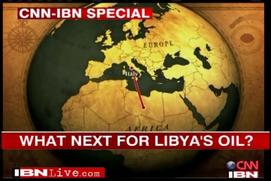
Fuelling the Fire
 All conflicts are about power and who will ultimately exert control over a people and resources.
All conflicts are about power and who will ultimately exert control over a people and resources.
That is why there is a persistent niggle about western intervention in conflicts, and whether there is a humanitarian aim, or one simply about access to resources. The brutal truth is that regime change often comes with an agenda attached. And often that agenda is oil.
Later this month, there will be the publication in the U.K. of a great book by Greg Muttitt, the ex-Director of environmental arts group Platform, called “Fuel on the Fire: Oil and Politics in Occupied Iraq”.
Oil was the reason that many people believed the Allies went into Iraq. Oil is literally not far from the surface of most modern conflict.
Has it played a part in the Libyan intervention? This point will be debated by analysts but certainly control of the oil fields is turning out to be a central issue in the conflict.
Today the Libyan rebels are due to export their first oil as they seek to secure urgent cash to sustain their uprising against Gaddafi. A Liberia-flagged tanker was reportedly going to take on board an estimated one million barrels of oil, with Qatar offering to market the Libyan rebels’ oil.
At current prices, this would sell for a cool $125 million. Many analysts predict that Gaddafi’s forces may now try and blow up the country’s oil fields to stop the exports.
The legacy of a long-forgotten conflict is also slowly being played out. Over 25 years ago, Britain went to war against Argentina due to the Falklands. Yes the conflict was about the liberation of a island people who see themselves as British. But was it also about oil?
Yesterday it was announced that the Falklands oil exploration company, Rockhopper has estimated that there is almost three times as much recoverable oil than previously reported at one of its wells in the South Atlantic.
The company announced that it believes there are at least 155m barrels of oil extractable from the Sea Lion well, which is some 80 miles north of the Falkland Islands.
Shares in Rockhopper Exploration shot up by 16pc, after the company estimated there was more oil in its Falklands well than previously thought.
The news was greeted enthusiastically by investors, with the company’s share price rising by 38 per cent.
But, despite the excitement it is the only company to have found oil in the Falklands during a year of frenzied exploration.
One thing is certain though. The news will be greeted with dismay in Argentina. And the more oil that is found, the more likely that the conflict could rear its ugly head again.
The Argentineans will see it as pouring fuel on the fire of this simmering dispute …
